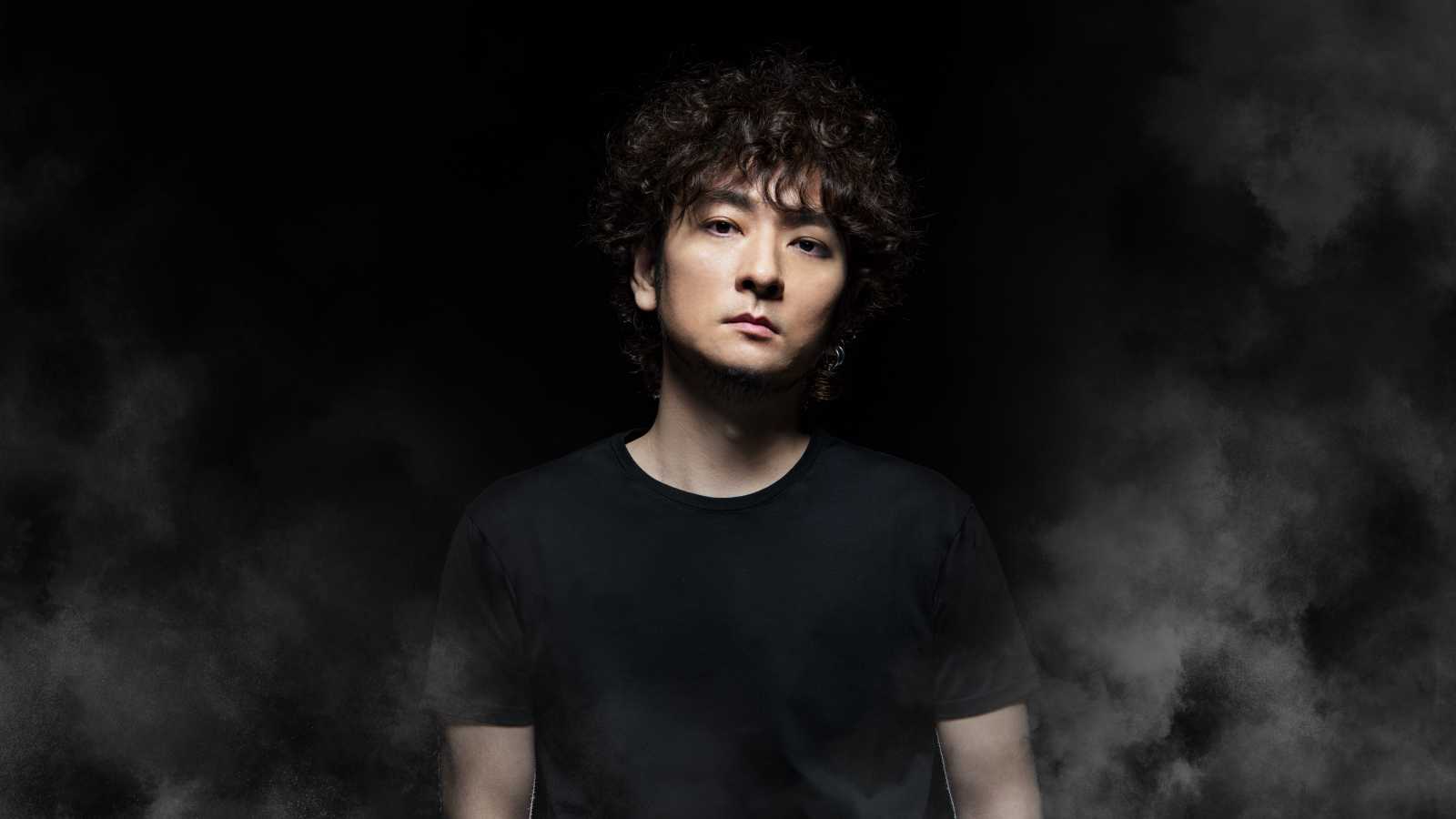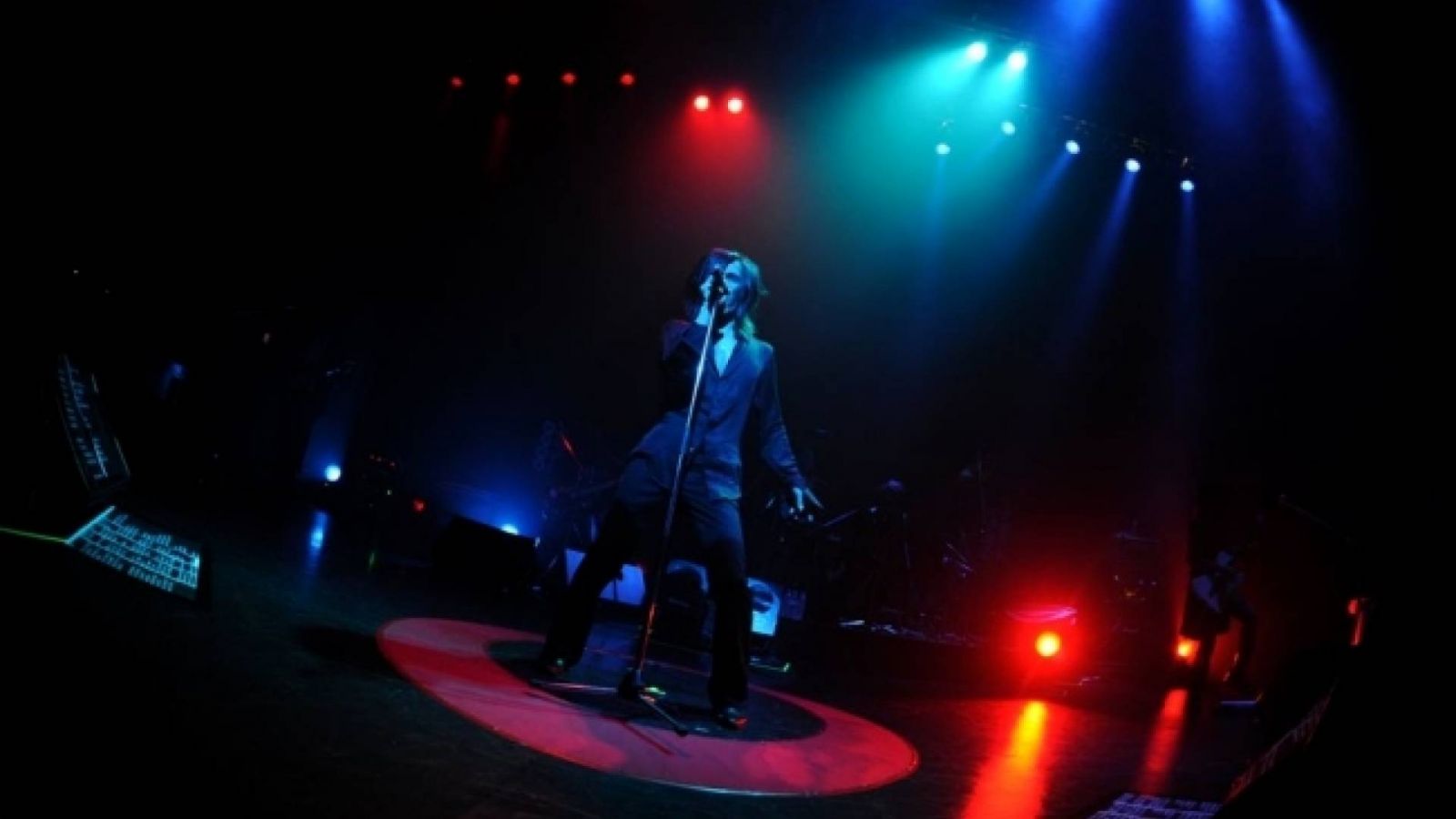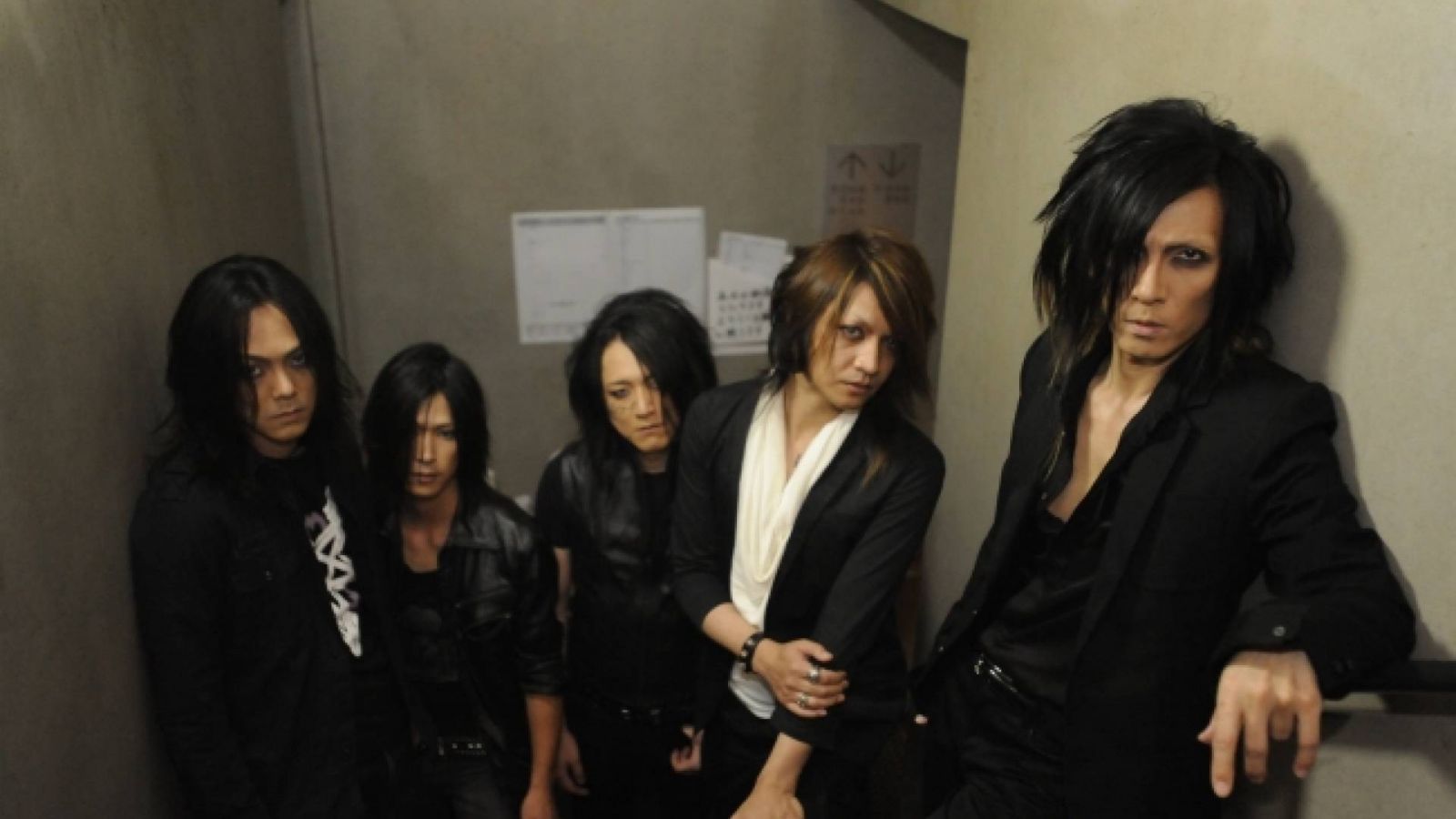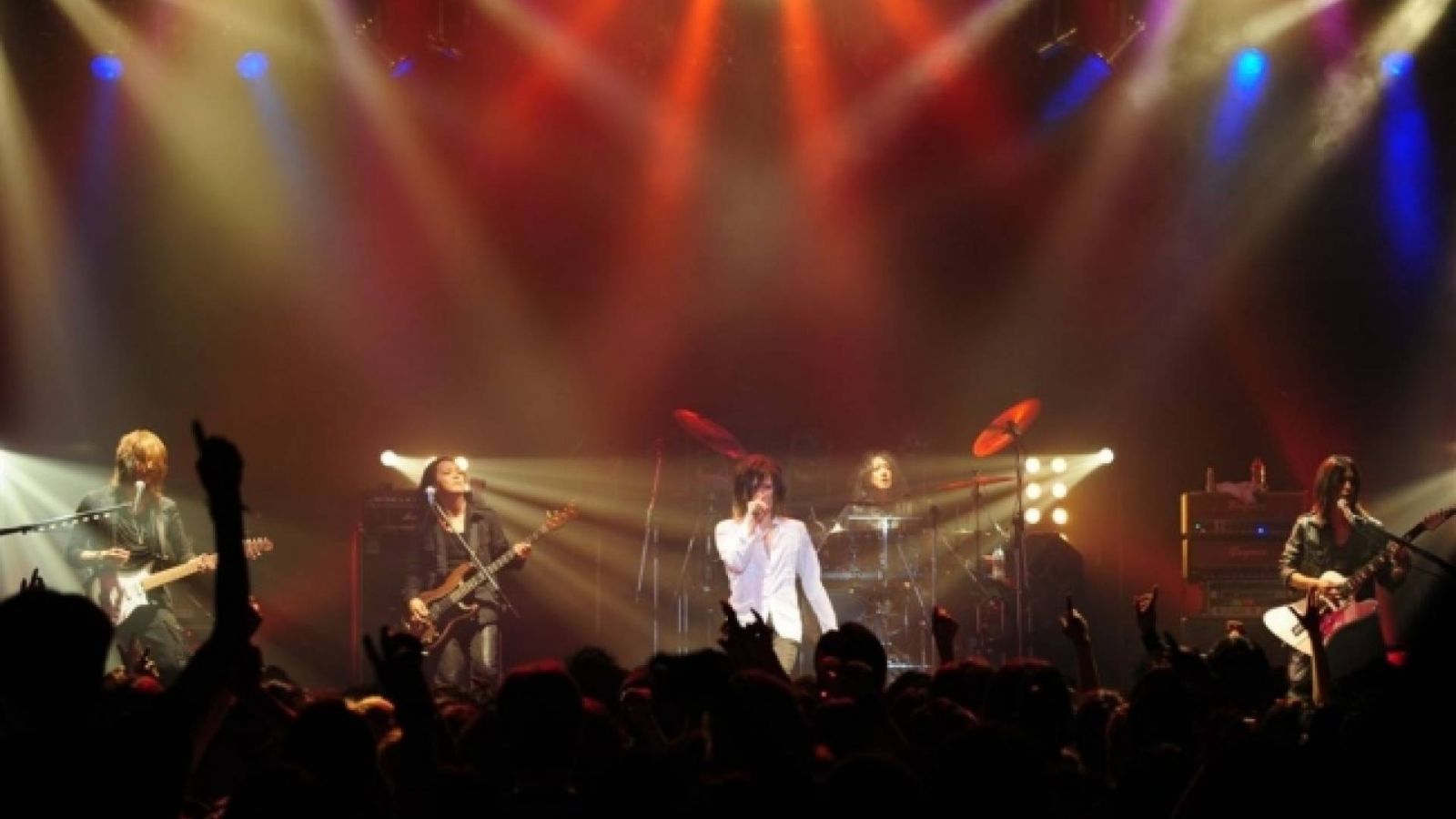JaME sat down with Creature Creature after their lives in Tokyo and Osaka.
After being shrouded in silence for nearly two years and a half years, Creature Creature vocalist and front man MORRIE surprised the Japanese music scene with a comeback featuring two lives. Again, he had gathered a number of impressive musicians around him; Hiro (Libraian, ex-La’cryma Christi), Shinobu (ex-Guy’s Family), Hitoki (ROBO+S, ex-Kuroyume) and Sakura (S.O.A.P., ex-L’Arc~en~Ciel).
On the day after their performance in Tokyo, we got the chance to hold an interview with the band. Unfortunately, Hitoki could not be present at the interview.
Could you introduce yourselves please?
MORRIE: I’m vocalist, MORRIE.
Hiro: I’m guitarist, Hiro.
Shinobu: I’m guitarist, Shinobu.
Sakura: I’m drummer, Sakura.
MORRIE, you formed DEAD END in 1984, and started a solo career in 1990, so you have a quite long music career. Why did you decide to use the name Creature Creature instead of reactivating your solo career?
MORRIE: Before I started Creature Creature in 2006, I had been playing in the band DEAD END. When I moved on to my solo activities after that, I basically composed alone using a computer, but I still had the desire to play live in a band for years after. I wanted to play under a band’s name rather than my own, so three years ago I created the name Creature Creature, and here we are today.
You wanted to separate the band’s activities from your former solo activities, right?
MORRIE: Yes, I did.
What does the band’s name mean?
MORRIE: It doesn’t mean anything especially, it is just my inspiration. The words "Creature Creature" came into my mind suddenly, I didn’t translate it from Japanese or anything like that. It has a nice ring to it too. (laughs)
Did the release of DEAD END’s Infinity and your solo compilation; ECTOPLASM in 2005 help your decision of returning to the music scene?
MORRIE: Well with the release of Infinity, fans worked on the record company so it could get released. I guess the record company thought my solo compilation album also would sell the same way. (laughs)
You released three singles - Kaze no tou, RED and Paradise - in 2006 at the same time, and your first album Light & Lust in August of the same year. Light & Lust featured guest performances from all of your ex-DEAD END band members, what was it like to work with them again?
MORRIE: Well, we didn’t actually play together in a studio, we recorded separately. But even though that was the case, I thought they were great. You know we hadn’t played together for about 16 years. Listening to them play was pretty emotional for me.
What prompted you to meet with tetsu (L’Arc-en-Ciel) and Minoru (ex-THE MAD CAPSULE MARKETS) when you started Creature Creature?
MORRIE: They were introduced to me when I was looking for members.
You performed at the event DANGER IV, which was the year-end event in 2005, as a secret performer. How did that go? Did you shock the audience?
MORRIE: Was it shocking? I guess it was like, “Who are they?” (laughs)
So it was kind of like a debut for Creature Creature?
MORRIE: The event was around Christmas time, so it had been about 13 years since I last stood on a stage. I think we only did two songs that day.
You co-produced your album with Hajime Okano. Was he an important part of the recording process, like in DEAD END, or did you have a clear vision of how the album should sound before meeting with him in the studio?
MORRIE: Most of the time, I make the basic structures of songs, including vocals, in New York. I bring the data to Japan, then record them. tetsu and Minoru also wrote two songs respectively, making them in Japan, so we sent demo tapes to each other before I came to Japan, and we worked together on the arrangement in Japan.
This time, you played two lives in Osaka and in Tokyo, and you played a lot of new songs there. Did you make them after you released the album?
MORRIE: Yes, I did.
How did you make those new songs?
MORRIE: I made the songs and sent the data to the members over the internet. They listened to the songs, and they played some parts the way I wanted them to and others freely, as they wanted to.
Your performance seemed quite difficult with a lot of technique, which impressed me, it was almost like I was watching a jazz session. Do you find it difficult to play the new songs?
Sakura: More than half of the songs we played in these two lives were new songs which aren’t on the album, and I think that they felt difficult when I listened to them for the first time. We have various songs which are difficult in different ways. When the two lives were decided, I was told, “We’ll play some new songs” and we exchanged data. I was given quite a long time to listen to them again and again, so my first impression that they are difficult disappeared as time went by, as they somehow soaked into me.
During the lives, did you play the demo which MORRIE made exactly? Or did you put your own improvisation in?
Sakura: I did both. There are various parts where it’s better that I play it just as MORRIE made it in the demo, and there are parts where I am better putting in my own playing. MORRIE told me in Japan that I don’t have to play exactly the same as the demo, too.
Hiro: For me, I was asked to do a guitar solo, but the demo was already composed firmly and completed and didn’t have a guitar solo in it, so I had to put one in. So there were some parts where I could play freely, where I could put my own colors into the music.
So MORRIE, you let Hiro play guitar solos.
MORRIE: In the parts where the guitar riff was already determined, I let him play as they were, but there were free parts too, so I thought I should just let him do what he wanted.
Why did you choose Hiro as a guitarist?
MORRIE: When I made the album in 2005 and we were going to do a live, I listened to the album of La'cryma Christi, ZEUS, and I really loved it. (laughs)
Hiro, I was impressed with your use of effects in the live and the various guitar sounds you made that matched the songs well.
Hiro: You think? (laughs) I did what I could, but MORRIE requested sound quality too, so we made our sounds as we discussed key points of the music.
Shinobu, you are youngest among the members. How did you feel when you were chosen?
Shinobu: I just thought, “I have to work hard!” The songs are difficult, but I had enough time to work on them, so I concentrated on working as hard and as much as I could.
Did you receive any advice?
Shinobu: I thought, “I’ll copy all of the songs completely!” at first. After I could do that, then I would ask for advice next, which was a personal goal of mine.
When did you start rehearsing, and how many times did you actually play together?
MORRIE: We started on June 8th, and we played together about six times.
While you played together, did the original songs gradually change?
MORRIE: Some songs changed, but basically the structures of the songs didn’t change a lot. However, the combinations and vibrations of each instrument got better as we played together more and more, so we played as many times as possible within those six occasions.
In your lives, did you improvise a lot?
Sakura: For me, yes, I think so. I felt a kind of mood coming from MORRIE: “Add something here.” And at other times, “Do more!” (laughs)
Did you feel that while you were playing?
Sakura: Yeah, I did. Even though we have only played only two lives.
How about guitar?
Hiro: I didn’t completely improvise my guitar solo, but rather based it on what we had decided on previously and added to it.
MORRIE, listening to your vocals, you are never out of tune, even with such a complicated sound. I was surprised at how you managed to stay in tune in such an environment.
MORRIE: Oh, no, I was out of tune often. (laughs) I’m not used to singing such loud music. When I practiced at home, I sang listening to my own voice. But when I sang with all the loud accompaniment around me, the way I used my body had to totally change, so that gap was hard.
There are big contrasts in your songs. There were violent parts and silent parts. Are you conscious of these contrasts of ‘violence’ and ‘silence’ when you make songs?
MORRIE: Yes. The live title Simone and Wrath shows this, I had a clear concept that we would play both types of songs, quiet songs like Simone (French philosopher Simone Weil) and moving songs like "Wrath."
In the 80's, the American label Metal Blade released a couple of DEAD END albums in the US, did you receive any offers to play outside Japan back then?
MORRIE: I don’t know. Maybe, but sometimes I don’t hear about these things.
Do you want to play overseas with Creature Creature?
MORRIE: Yes, I do. But that is not so easy, with all the requirements that have to be met and so on. But I would really like to.
When I saw your live yesterday, I felt how great a live concert really is, with all the instruments, so different from the sound you get on CDs. We want to see more lives like that, even in Japan.
MORRIE: Yes, I want to play more.
Can we expect more lives from you from now on?
MORRIE: We are talking about it, so please keep pushing for it. (laughs)
What did you learn from these lives?
Shinobu: I felt like I was reset from all of my former experiences, because what I thought would work didn’t.
So you grew?
Shinobu: It wasn’t like I grew, but I feel like I was reborn. (laughs) It was a big challenge for me, and I’m very happy to be able to play this music with these members. I want to keep playing real, good music from now on.
Sakura: I really respected the band DEAD END. I loved the band so much that I was a staff of DEAD END for a while. Since then, I have gotten to know MORRIE, and it was like a dream to be able to play with him. This time, my dream came true. I want to sublimate this energy and make much use of it in the future. I am proud that I can be a member creating and playing the music of Creature Creature. It's not just a dream; I realize that I am a member and I want to contribute to Creature Creature as much as I can from now on.
Hiro: I felt the same thing which Sakura thought. I really felt the heat of the fans who had been waiting for MORRIE from the stage. I really enjoyed playing guitar; I was so happy. If I can, I want to play in more lives. (laughs) Last time, I reflected on what I wanted to do better, but this time, I tried to play as an equal member of the band, and I think that I am gradually moving closer to that ideal.
Did such experiences influence your guitar playing?
Hiro: Well, yes, of course. (laughs) I learned a lot of new things, such as guitar chords that I had never seen before.
MORRIE: This time, when I decided on the members, I didn’t choose like “I want this drummer,” “I want this bassist” or “I want this guitarist.” I wanted to make a band which could work as a band. I imagined the chemistry which would be born in a band. I didn’t want to finish just as a session band. This time, it fit together quite well. So as Hiro said, I want to see how we would be playing more than just two lives. I know the potential of each member is huge, but I think the potential that we have as a band is bigger. I think that this will be met when we get some more time to rehearse and play together in live concerts.
How was the bassist Hitoki, even though he isn’t here in this interview?
MORRIE: Well, he is a bassist, very rock.
I was impressed that Hitoki and Shinobu looked at each other to catch the timing to start the last song, Haru no kikai. Did you guys get that kind of harmony from your rehearsals?
MORRIE: Not only do we play together as musicians, but our human nature is a very important part of the band. So I think that this is part of what you are describing. I know some bands where members hate each other but make awesome sound. (laughs) I think the potential of this band is made even bigger when you consider that, so I am looking forward to how the band grows.
There are so many musicians who respect you and are influenced by you, I now have a greater understanding of why after seeing you on the stage. MORRIE, I think you are the truly the origin of popular current vocalists in the present music scene. Please give your message to your fans around the world.
MORRIE: I want to go overseas soon. Invite us!
JaME would like to thank Creature Creature and Craig for making this interview possible.









